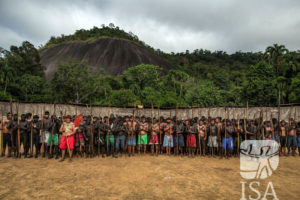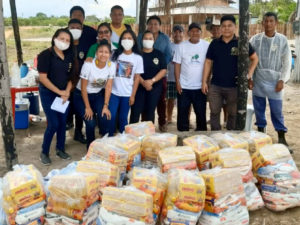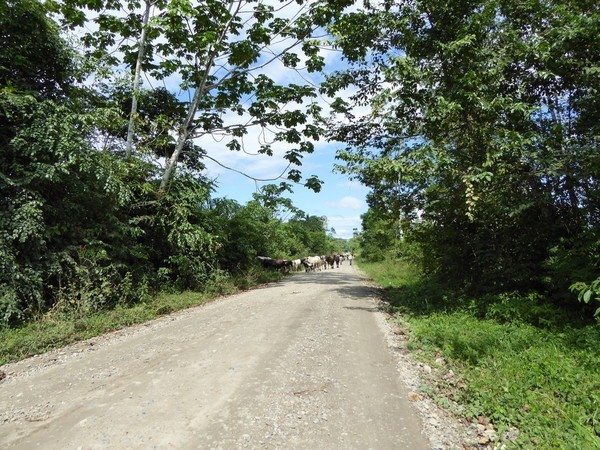Mass Trial of Indigenous Leaders to Take Place in Peru on May 14
On May 14, 2014, a trial involving 57 indigenous leaders will begin in Bagua, Peru. The biggest trial in Peruvian history, it is one of many that followed the unfortunate events known as the “Baguazo” in June 2009.
In June 2009, a series of government decrees that would have restricted indigenous peoples’ control over their lands and resources triggered protests in the Peruvian Amazon. The protests and subsequent crackdown culminated in the killing of 33 people between policemen and indigenous leaders, in a series of events known as the “Baguazo”, after the town near which most of them took place. Since then, over 100 cases involving more than 350 indigenous people have been filed, in a further crackdown on civil rights. Thanks to support from the Rainforest Fund and a small but dedicated team of lawyers, our partners at the Interethnic Association for the Development of the Peruvian Rainforest (AIDESEP)—the main representative indigenous organization in Peru—have been able to successfully strike down almost every one of the cases. Three cases now remain; but they present a huge challenge, as they involve the largest number of people, and the most serious accusations.
After years of legal back and forth, the case known as the “Curva del Diablo”, is going to trial on May 14, 2014. The case involves 57 defendants—and as such, will be the largest trial ever held in Peru. Possible sentences vary from 5 years to life in prison. AIDESEP President Alberto Pizango is among the defendants, and faces 35 years to life in prison for “instigating” the events that took place— despite the fact that he was hundreds of miles away in Lima at the time. It is expected that the trial will take six to nine months. While 57 indigenous people are standing trial, none of the politicians who ordered the crackdown face charges, even though the Peruvian Congress voted for them to do so in 2011. These cases come at a time of increasing criminalization of protest in Peru.
The events in Bagua brought issues around indigenous rights and development in the Amazon to the fore, with several in government claiming the indigenous movement was “against development”. Since then, AIDESEP and indigenous communities have demonstrated that they are not against development, and in fact have presented proposals for community forest management, environmental monitoring, and climate change mitigation. Indeed, the role of indigenous peoples as forest protectors is being increasingly recognized, in Peru and elsewhere.
In the words of Alberto Pizango, “There’s a ’before Bagua‘ and an ’after Bagua‘. A ’before‘ in which the Peruvian State didn’t want to and didn’t know how to listen to the proposals of indigenous peoples. This exacerbated the situation until things came to what happened, which unfortunately took so many lives unnecessarily. I’d say an ’after Bagua‘ because thanks to the Amazonian mobilizations, today the indigenous agenda is not only inserted in the national level and within the State, but on the international level.”
Read More

Murder of Two Yanomami by Illegal Miners Heightens Fears of Renewed Cycle of Violence in the Brazilian Amazon
The murders reinforce the need for the Brazilian government to immediately expel the more than 20,000 miners illegally operating on Yanomami land.

Miners Out, COVID-19 Out: The Yanomami and Ye’Kwana People of the Brazilian Amazon Launch a Global Campaign to Expel Miners From Their Territory
Indigenous leaders demand the urgent removal of 20,000 illegal gold miners from their lands to prevent the spread of COVID-19

Voices from the Ground: COVID-19 Response in Roraima, Brazil
An interview with the Legal Advisor for the Indigenous Council of Roraima about adressing COVID-19 in his territory.
Support Our Work
Rainforest Foundation US is tackling the major challenges of our day: deforestation, the climate crisis, and human rights violations. Your donation moves us one step closer to creating a more sustainable and just future.


